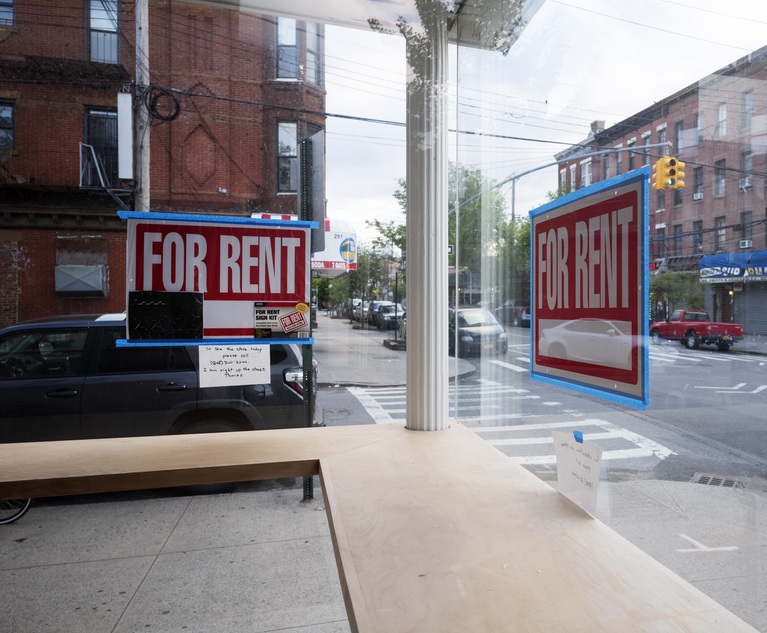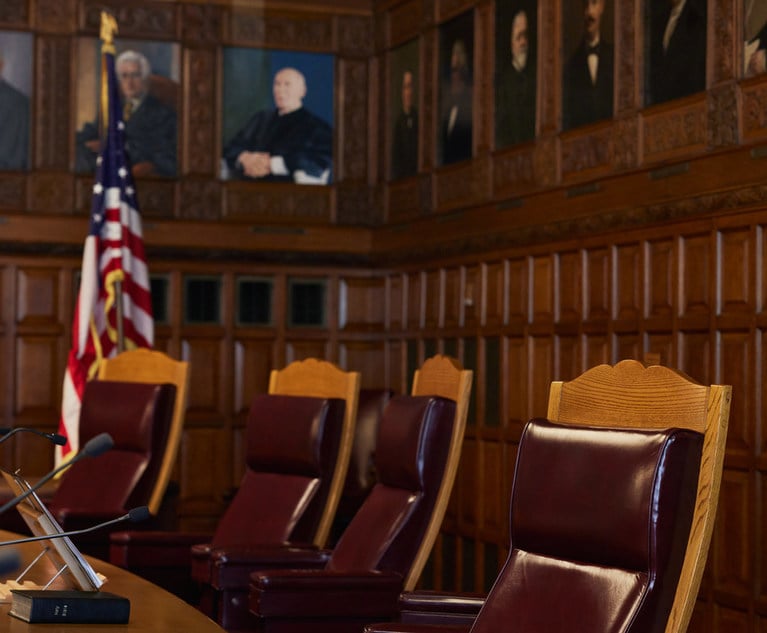Looking primarily to states like Connecticut for guidance, the Appellate Court of Maryland concluded that economic challenges stemming from COVID-19 executive orders themselves are not sufficient to establish the affirmative defenses of frustration of purpose and legal impossibility for failure to pay rent.
David and Carolyn Marquis leased an Annapolis, Maryland, property for a restaurant/pub known as the Chesapeake Brewing Co. The couple operated the business without substantial difficulties until the arrival of the COVID-19 pandemic and when Gov. Larry Hogan issued an executive order in March 2020 limiting bars and restaurants to carryout orders.
The Marquises asked their commercial property landlord, John Critzos II—who is also a personal injury attorney serving Maryland and Washington, D.C.—to abate the April rent due to their inability to operate the restaurant/pub as usual. The landlord and tenants never reached an agreement and the Marquises never paid rent, but rather they informed Critzos on April 23, 2020, that they wished to terminate the lease, according to the appellate court’s opinion filed Tuesday.
In May 2020, Critzos filed a complaint in Anne Arundel County Circuit Court alleging that the tenants breached their lease agreement and he sought a judgment in the amount of $79,533.45 plus attorney fees in the amount of $4,340.22, the opinion said.
At trial in July 2021, the Marquises presented the affirmative defense of frustration of purpose and legal impossibility. They claimed they had no other sources of income and argued that their inability to operate their restaurant due to shutdown orders should excuse their nonpayment of rent to Critzos, according to the opinion.
The circuit court issued a ruling in favor of the couple in September 2021, finding that the pandemic and statewide shutdown orders “‘constitute[d] unforeseen circumstances, especially at the times of the parties contracting,’” and that the “‘executive orders, by undisputed testimony of the [Marquises], had made the sole purpose of their lease an illegal activity—frustrating this purpose in a legal sense,’” the opinion said.
The circuit court also found that the tenants’ decision to seek to terminate their lease was “‘a reasonable decision based on commercial frustration and impossibility, and that it was taken after passage of a reasonable amount of time,’” the opinion cited.
At the time of the circuit court’s decision in September 2021, the “parties agreed ‘that they had found no reported Maryland cases on point as to whether the impossibility and frustration defenses properly might be invoked in the context of the COVID-19 pandemic,’” the opinion said.
Critzos appealed, asking the appellate panel to consider whether the Marquises presented sufficient evidence to establish the affirmative defenses of frustration of purpose and legal impossibility.
The Maryland Appellate Court looked to federal and state court cases, which reached differing conclusions as to the applicability of the frustration of purpose/legal impossibility defense.
Most recently, the U.S. District Court for the Northern District of Illinois found in Firestone Financial v. WA Gym Naperville North that “a frustration of purpose defense failed as a matter of law in the context of whether commercial tenant gyms were excused from paying rent to their commercial landlord during COVID-19 related shutdowns,” the opinion said.
However, a Massachusetts trial court concluded that the frustration of purpose doctrine applied to the shutdown orders of a Boston-based coffee shop because, pursuant to the lease, the business could “‘use the leased premises only to operate a café with a sit-down restaurant menu ‘and for not other purpose,’” the opinion said, noting that the tenant’s rent was only temporarily discharged by frustration for approximately three months when executive orders were relaxed.
The Maryland court also looked to the Connecticut Supreme Court with the case, AGW Sono Partners LLC v. Downtown Soho, in which a restaurant was completely closed from March 11, 2020, through May 27, 2020, due to COVID-19 shutdown orders. While Connecticut also allowed for takeout or delivery services, the tenant testified that it was not profitable for the restaurant to do so. The tenant did not make rental payments after March 2020 and vacated the premises six months later, according to the opinion.
The Connecticut Supreme Court concluded that “‘the doctrine of impossibility or impracticability did not excuse the defendants from their obligations to the plaintiff under the lease agreement,’” the Maryland opinion cited.
“What we glean from the above-cited out-of-state cases is that the focus necessarily must be upon what is expressly permitted by the terms of the lease. The lease at issue in this case provided that the Marquises ‘shall use the Leased Premises for Brewery/Pub only, and for related activities but for no other purposes unless written consent is provided by the Landlord,’” Berger wrote, further noting that the lease did not prohibit takeout dining, like other courts had to consider. “In our view, this case presents a situation substantially more akin to the bistro in AGW Sono Partners, LLC and the gyms in Firestone Fin., LLC than to the café in UMNV 205-207 Newbury LLC.”
While the Maryland Appellate Court did not ignore the economic challenges that business owners faced during limited services during the COVID-19 outbreak, it found those circumstances did not provide the tenants in the present case the affirmative defenses of frustration of purpose or legal impossibility.
“Throughout the entirety of the relevant time period, carry-out and delivery service continued to be permitted throughout the State of Maryland. Furthermore, the tenancy continued through the end of 2020, and in-person dining resumed—albeit at a limited capacity—in June. The COVID-19 pandemic restrictions did not order a complete shutdown of the Marquises’ business. We, therefore, hold that the evidence presented to the circuit court was insufficient to establish the affirmative defenses of frustration of purpose and legal impossibility,” Berger wrote.
Justices Christopher B. Kehoe and Kevin F. Arthur concurred in finding the evidence presented to the circuit court insufficient to establish the affirmative defenses. The judgment was reversed and remanded to the circuit court for further proceedings.
Peter Byrnes, of the Byrnes Law Group in Millersville, Maryland, represented Critzos. Byrnes told Law.com on Thursday that he appreciated the appellate court’s objective approach to the issue.
“Is the contract still able to be performed? If the answer is ‘no,’ then there’s certainly the argument that performance may be impossible or impractical, the purpose of it may have been frustrated, and so forth,” Byrnes said. “The bottom line is that COVID is not going to be treated as a special circumstance. Everything is going is going to be treated the way we have always treated contract law because contract law being about as old as it gets on the civil side—centuries of developments have led to some pretty reasonable give-and-take that will fit pretty much any fact pattern.”
A message seeking comment from John H. Denick, a member of Gordon Feinblatt, was not immediately returned on behalf of the tenants.
NOT FOR REPRINT
© 2024 ALM Global, LLC, All Rights Reserved. Request academic re-use from www.copyright.com. All other uses, submit a request to [email protected]. For more information visit Asset & Logo Licensing.










